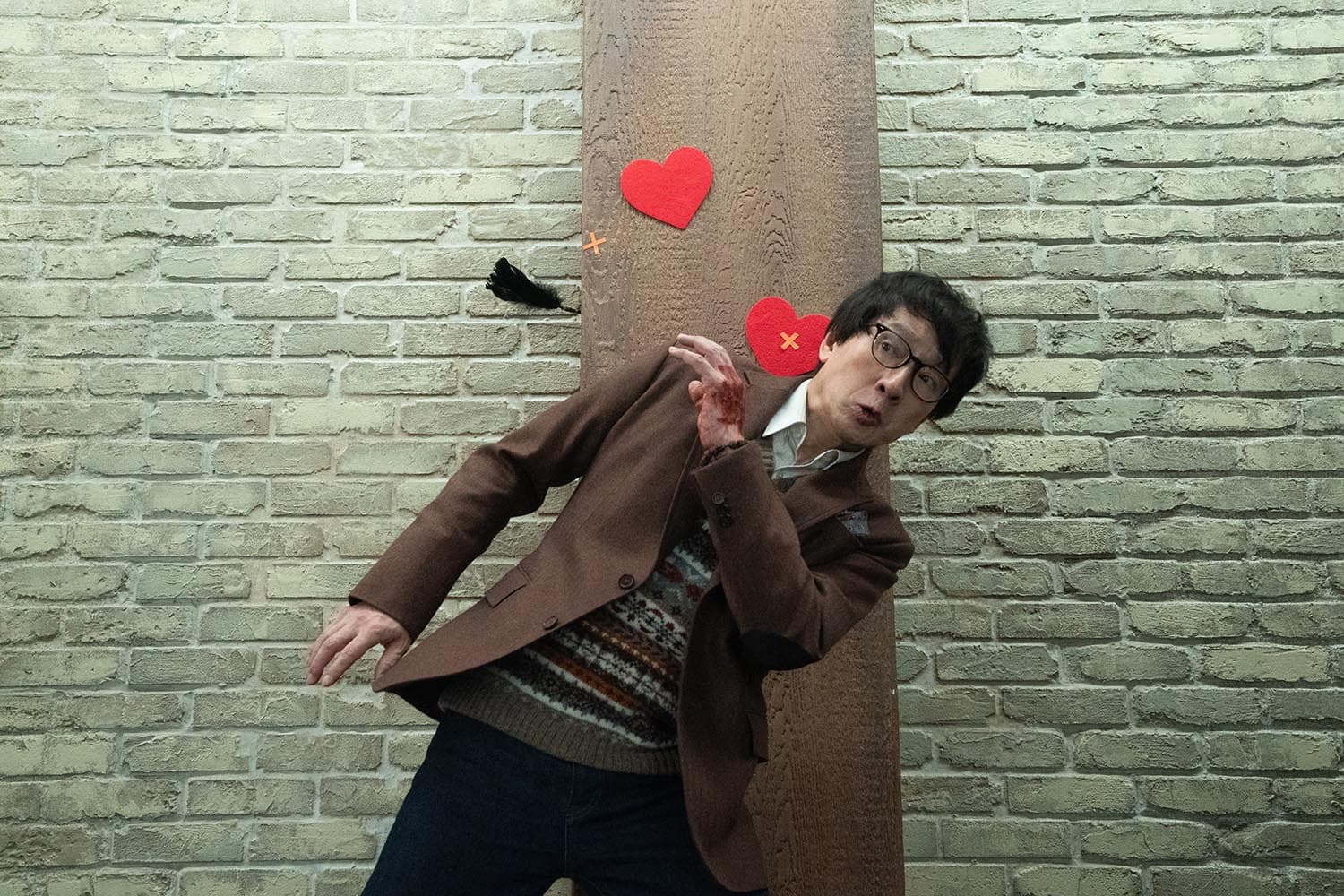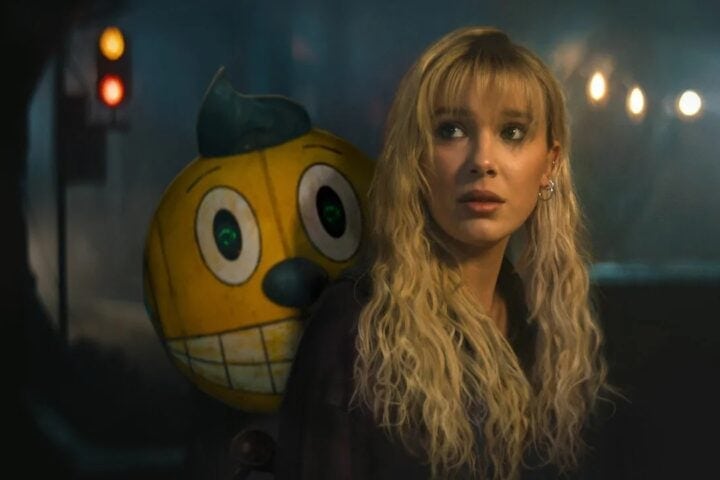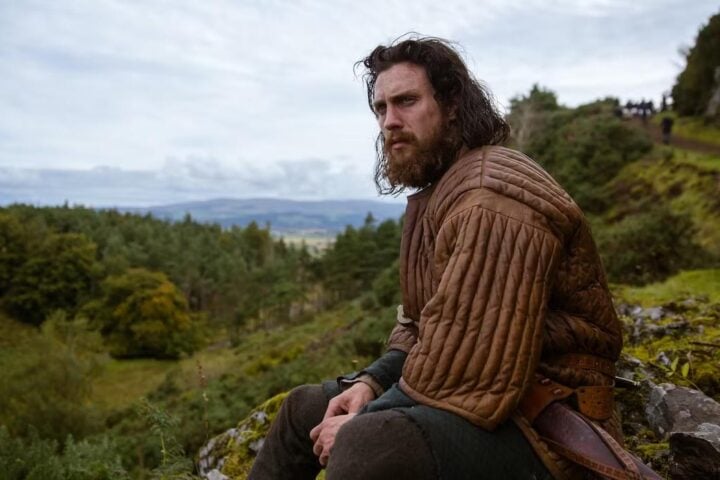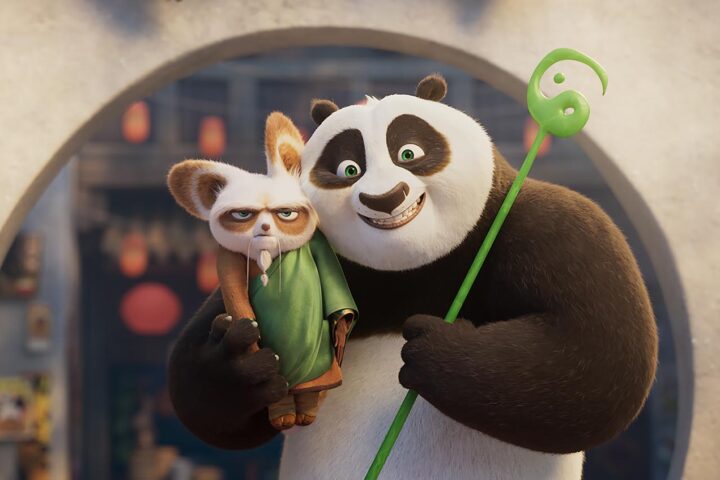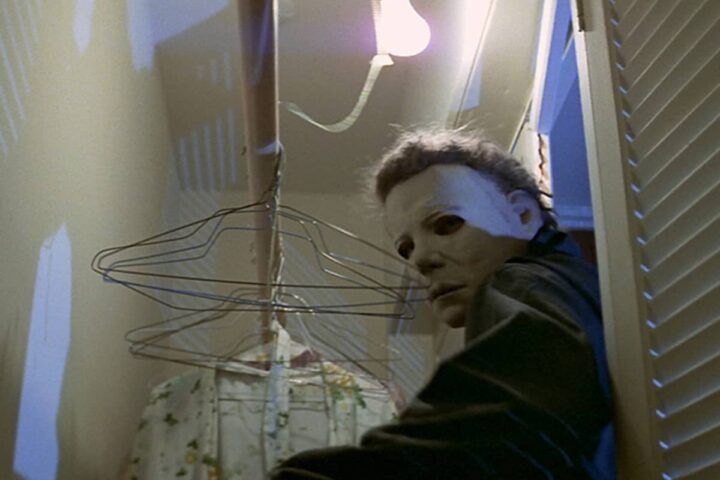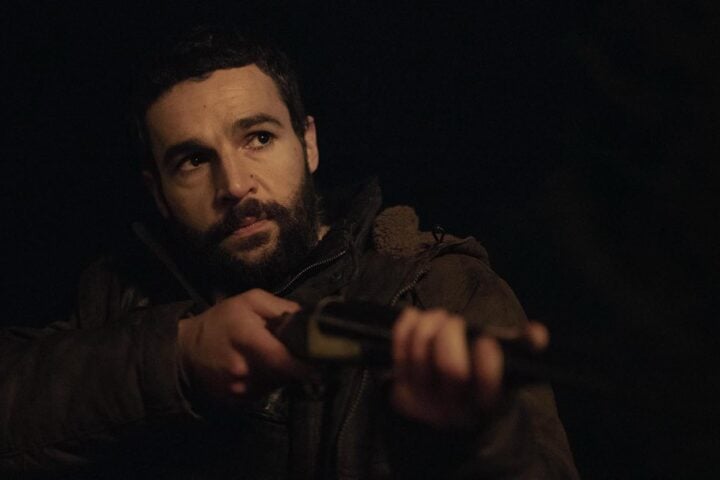The title of John Wick and Chad Stahelski disciple Jonathan Eusebio’s action rom-com Love Hurts feels like a misnomer, or maybe a red herring. Love is certainly an aspect of the patchy screenplay. For one, the wounds inflicted upon Ke Huy Quan’s apparently happy-go-lucky real estate agent Marvin by the purringly capricious lawyer on the run and object of affection in Ariana DeBose’s Rose catalyze the plot into motion. But the film is perhaps most engaging when it, inadvertently or otherwise, parses Quan’s newfound success since winning an Academy Award for Everything Everywhere All at Once as a kind of meta-text.
The meta-movie ingredients of Love Hurts are unmistakable. Marvin is running away from his past. He lives a double life. He’s ultra-protective of the real-estate award that he’s given toward the start of the film. And the finale takes place in a video store that specializes in kung fu movies. And, not unlike the Daniels film, which also played on the cinematic histories of its leads, it all appears to be a bit of a test of Quan’s range. Here, we’re invited to think of the actor as having been stuck for much too long playing subordinate male archetypes not unlike Marvin: brimming with sunlight, happy to serve others, almost puppyish in his eagerness to please.
As a result of the film’s fleetfooted 83-minute running time, Quan isn’t allowed to really plumb into the depths of his character, but he plays the doleful man-child with a crush with endearing earnestness, and he adeptly juxtaposes that side of Marvin against the man’s darker, more ruthless past self. Marvin used to do dirty work for his brother, Knuckles (Daniel Wu), from torturing enemies to burying bodies. Then, when he decided to help the woman of his dreams escape death after she embezzled from his brother, he took that as a wakeup call to get out and make a new life for himself. Play a new role, you could say.
The screenplay’s intermittent redundancies, mostly in the form of voiceover from Quan and DeBose’s characters, don’t lessen the agile and lucid work that Quan is doing here. Gradually, the niceties and cloying gleam of a home seller’s smile are peeled away to imply a rage ignited by feelings of inferiority toward a manipulative, boba straw-wielding older brother. But that the script has been pared down so much, while still offering so much repetitious dialogue, doesn’t allow the full breadth of that frenzy to truly flower in dramatic form.
Better than the family melodrama stuff that Love Hurts only gestures toward are the action sequences, beginning with Marvin’s entertaining transition from being on the defensive, just trying to figure out what’s going on, to going on the offensive. Marshawn Lynch has a memorable role as King, one of Knuckles’s ruffians who’s sent after Marvin, bringing a sardonic sheepishness that pairs amusingly with the brutality of the fight scenes.
As with the John Wick movies, the sound design does a considerable amount of heavy lifting in making all the stabs and kicks feel unforgiving. But Eusebio, a former fight choreographer and stunt coordinator on Stahelski’s movies, has learned mostly good lessons from his time on those films: Be clear on what your audience is supposed to see, where they’re supposed to be seeing from, and be novel. That’s certainly evident in everything from two bad guys fighting with giant decorative wall silverware to Marvin using a staple remover in his office to defend himself.
In addition to the solid work that Quan does in shaping his character, there’s pleasure in Eusebio’s eye for idiosyncratic details: the boba straws, a moment where a henchman dips his finger in Marvin’s crockpot, a funky guitar lick as Rose channels Pam Grier while pulling out a gun and wearing a leopard print coat. And through it all, Love Hurts is startlingly earnest in its affection for Quan and making him play both to and against type: As the action scenes get increasingly nasty, it becomes impossible not to see Quan’s bloodied hands as leaking his venom-like anger for all those years when he was ignored by Hollywood. In Everything Everywhere All at Once, Quan broke your heart, but in this one, he sets out to stomp on it.
Since 2001, we've brought you uncompromising, candid takes on the world of film, music, television, video games, theater, and more. Independently owned and operated publications like Slant have been hit hard in recent years, but we’re committed to keeping our content free and accessible—meaning no paywalls or fees.
If you like what we do, please consider subscribing to our Patreon or making a donation.

